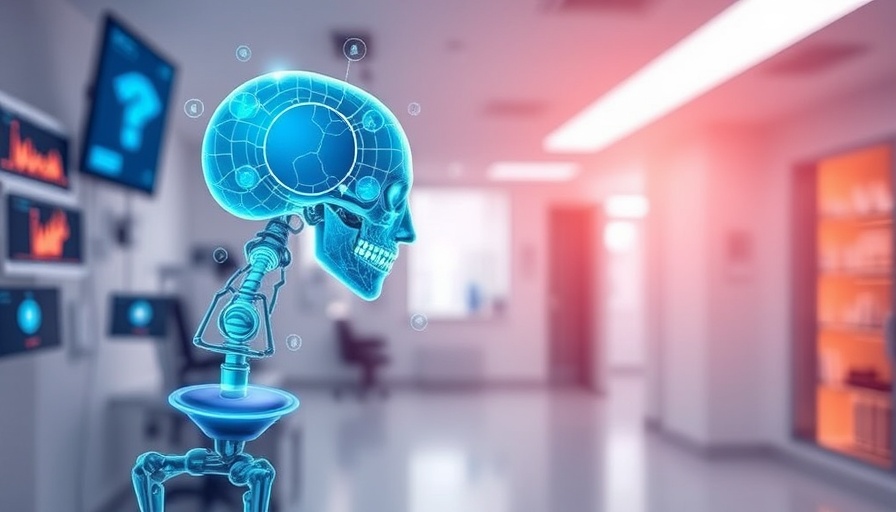
The Promising Rise of AI in Healthcare
Artificial Intelligence is transforming the landscape of healthcare at an unprecedented pace, marked by a staggering projected growth in the global AI healthcare market from USD 29.01 billion in 2024 to a whopping USD 504.17 billion by 2032. The European market anticipates a surge from USD 7.92 billion in 2024 to an astounding USD 143.02 billion by 2033 - a robust annual growth rate of 38%. This influx of investment and interest highlights AI's vast potential, promising not only more precise diagnoses and treatment options but also efficient management of healthcare facilities.
Unlocking Potential Through Accuracy and Efficiency
AI's role in providing enhanced accuracy in disease detection cannot be overstated. Applications utilizing AI are already proving beneficial in critical areas such as early sepsis detection and better breast cancer screening protocols. As noted by Antoine Tesnière, a medical professor, AI tools are poised to revolutionize how healthcare approaches disease management. He emphasizes the forthcoming era of 'super-precise' and 'super-personalized' healthcare strategies that these innovations promise.
The Human-Centric Challenges of AI Implementation
While the benefits seem promising, the road to comprehensive AI adoption is paved with significant challenges. One notable issue is algorithmic bias, which can severely impact clinical decision-making. For example, certain arrhythmia detection systems may not perform well on patients from diverse backgrounds, highlighting concerns regarding fairness and equity in AI applications.
Dr. Jessica Morley from the Yale Digital Ethics Center notes a particular concern she identifies as "inverse data quality law"—where high-demand areas for healthcare often suffer from a lack of quality data, making it difficult to design equitable and functional AI systems. To create truly effective AI tools, stakeholders in the healthcare sector must navigate complex technical limitations and governance issues.
Hope on the Horizon: Opting for Secure, Ethical Innovation
Despite such challenges, there is optimism among experts. Dr. Morley highlights the potential of secure data environments to harness the power of AI while safeguarding individual patient privacy. Such innovations might provide a paradigm shift, enabling the benefits of AI without compromising ethical standards.
Regulatory Frameworks Navigating the Future of Healthcare AI
To align innovation with ethical considerations, the European Union has introduced crucial regulatory frameworks aimed at facilitating responsible AI development. One of these, the EU Data Act, seeks to improve access to data produced by connected devices, promoting innovation without undermining patient rights and transparency. This approach balances the need for technological progress while ensuring the protection of fundamental rights.
Looking Ahead to AI-Driven Healthcare
The integration of AI into healthcare is not merely a trend; it represents a fundamental shift towards a model that emphasizes precision and efficiency. For CEOs and decision-makers, understanding these shifts is crucial. Not only do they signify a potential for improved patient outcomes, but they also highlight the need for strategic investment in technology that aligns with ethical practices.
As this landscape evolves, the convergence of AI and healthcare will present new opportunities and challenges. From decision-making processes to patient engagement, the overall performance of healthcare systems stands to benefit immensely. Nevertheless, to realize these benefits fully, a focus on equity and transparency must remain central to all AI initiatives.
As leaders in technology and marketing contemplate these advancements, the call to action is clear: engage with AI thoughtfully, invest in ethically sound solutions, and keep a keen eye on the evolving regulations shaping this burgeoning field.
 Add Row
Add Row  Add
Add 




 Add Row
Add Row  Add
Add 

Write A Comment